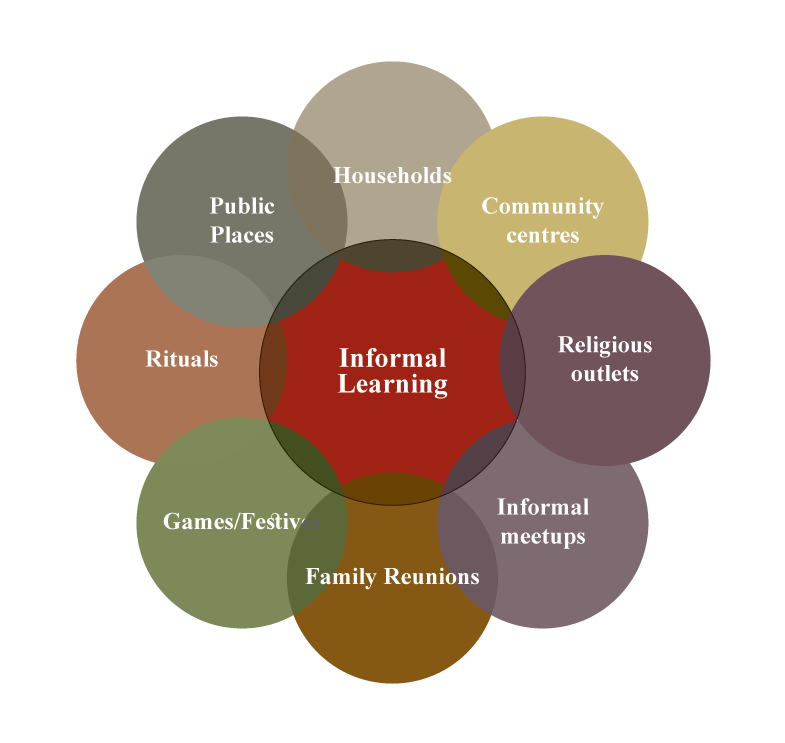e-Learning Ecologies MOOC’s Updates
Informal Learning
The concept of informal learning evolves from learning from outside of the classrooms or formal setups meant for education and learning. The person learns unintentionally and learning results from social interaction, activities, rituals, cultural or religious setups.I was inspired by the lecture of Prfessor James Paul Gee's lecture on 'Society or School: What Determines Educational Outcomes?'. He talks about the importance of a society in which the school is embedded and one cannot ignore its influence on education and learning. As living in South Asia, I would relate this more with cultural and religious outlets, by products of complex socio-cultural interactions. For example, in Pakistani society a lot of learning takes place outside of the formal institutions. A sermon in mosque on Friday about community collaboration can be an example of informal learning. Similarly, there is this trend in rural areas where people gather at certain outdoor places, maybe under a huge old tree or veranda of a house of a local community leader the interaction can result in an informal learning. Moreover, in rural society informal leaning shapes many forms. Like a son helping his father in the field in growing crops, he is learning different skills from his father; this can be an informal learning experience.
Women in rural areas teach different life skills to their daughters and equip them with different crafts this happens in a non-formal arrangement.
These skills can be soft or hard, how to communicate with strangers, how to prepare a meal or how to manage household chores with schoolwork etc.
In an urban setup with different social dynamics this learning experience can be varied. A discussion on health in gym or a walk-in park with like-minded individuals can be an unplanned learning. And with constantly developing technologies and evolving global influences informal learning shapes and molds accordingly. These can include collective cognition development practices through informal learning. Like a community/political leader prepares young volunteers from the community to arrange a festive event. He transfers his experience in multiple informal settings; he might share his political experience during a tea party with others. He might arrange a dinner and talk to passionate young leaders about indigenous wisdom.



In-Formal Education is the learning process that individuals can acquire outside the formal organizational system.
Examples: Activities such as museum visits, family conversations, watching television, reading, networking events, etc
Therefore, learning in this form can easily occur outside the traditional curriculum, but at the same time occurs naturally in Formal and Non-Formal Education programs.